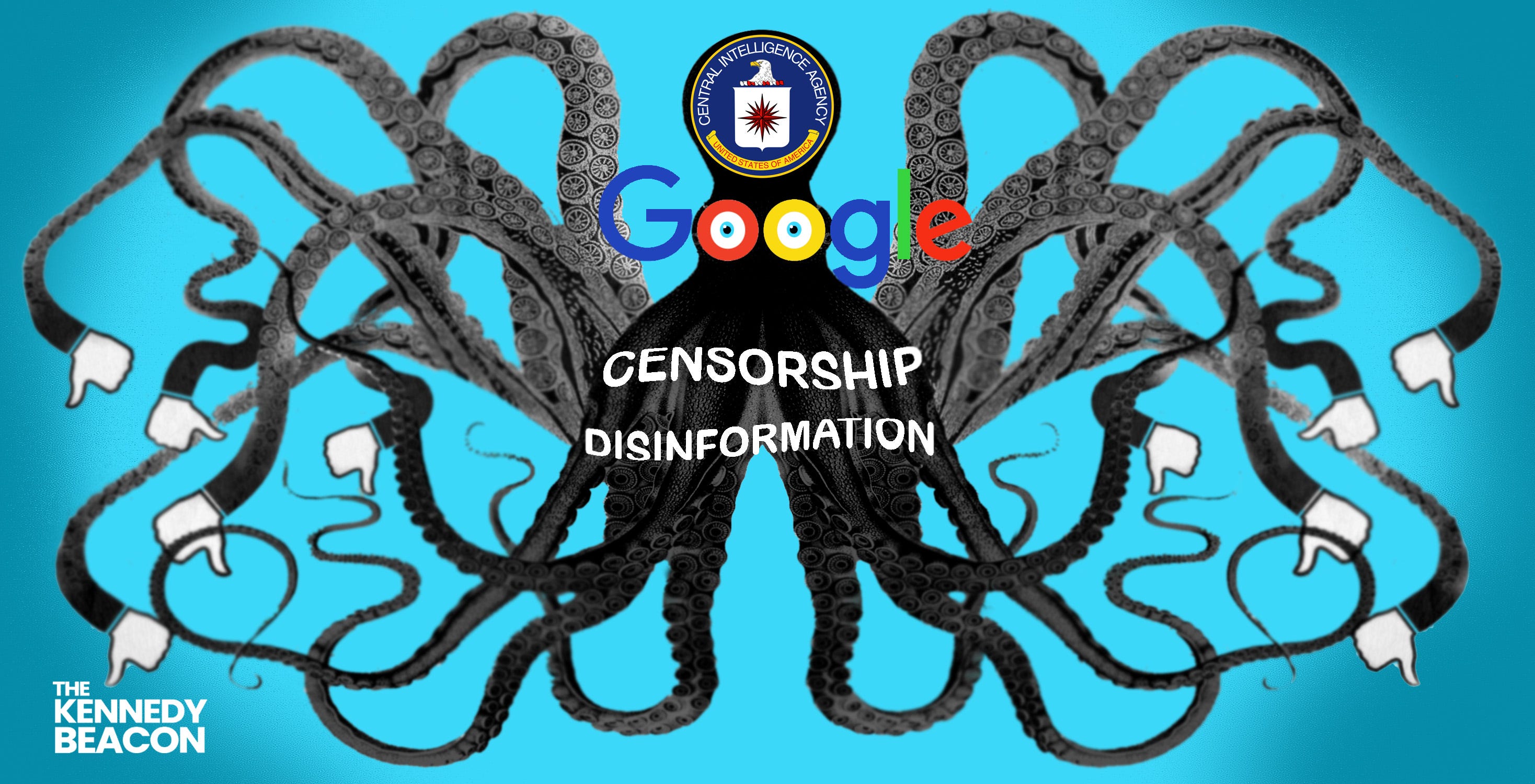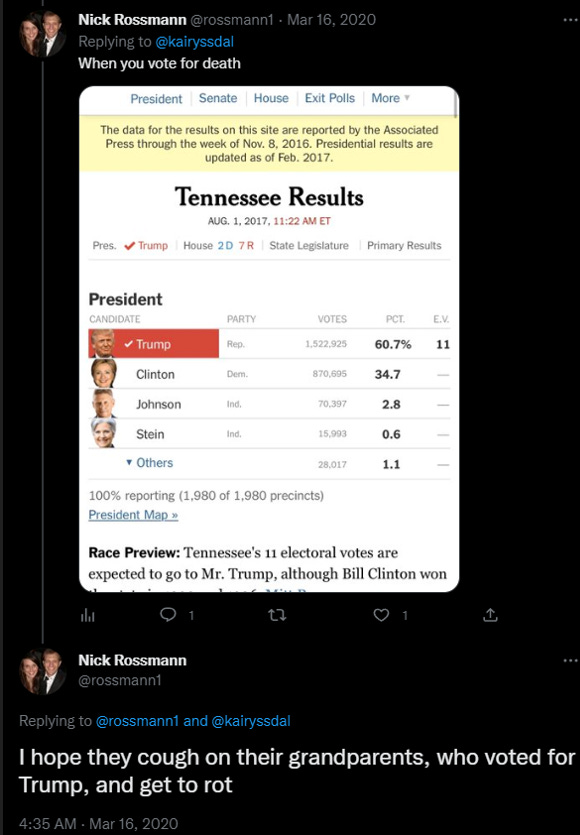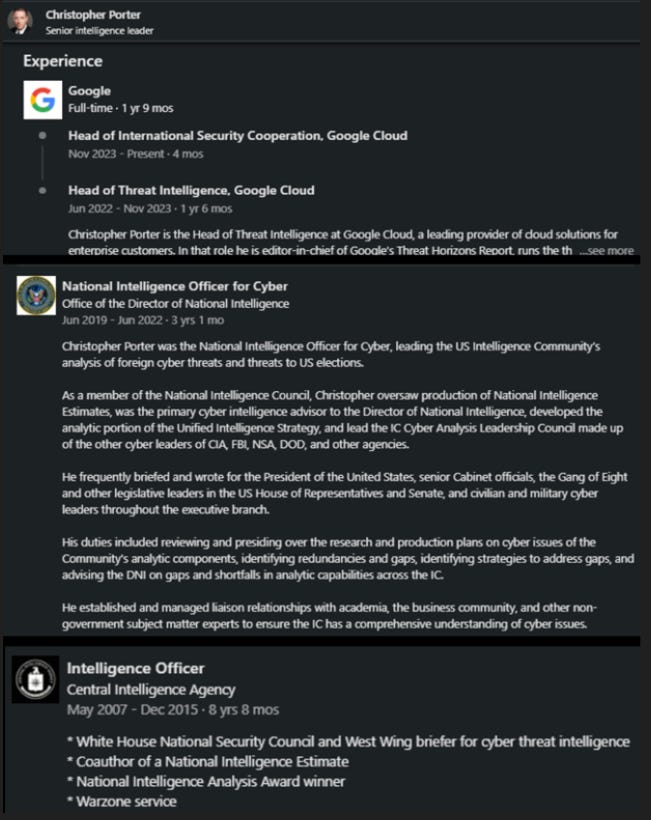Big Tech’s Election Interference: Why Google and Meta Went Shopping for Former US Intelligence Officers

In 2016, a seismic event reverberated through the Washington, DC, establishment: an anti-establishment outsider, Donald Trump, clinched the presidency. This unexpected victory sent shockwaves through mainstream media, the Democratic National Committee, and the DC establishment, all of which were quick to attribute Trump’s win to Russian interference, citing alleged hacks, online bots, and disinformation campaigns. However, subsequent scrutiny revealed these assertions to be mere propaganda, aimed at delegitimizing Trump’s presidency.
As the 2020 election loomed, the Intelligence Community mobilized to prevent a repeat of the 2016 upset. The question I’ve pondered for over a year now is: Why have tech giants like Google and Meta been on a hiring spree for ex-Intelligence Community personnel since 2018? The answer appears clear.
With a majority of the American electorate turning to social media as a primary source of news consumption, the CIA found itself compelled to orchestrate a modern-day Operation Mockingbird. This initiative encompassed not only the censorship of dissenting opinions but also the amplification of establishment narratives and the dissemination of various disinformation campaigns. In essence, they sought to control the flow of news on social media to influence electoral outcomes.
The timing and staffing changes within tech giants like Google and Meta after the 2016 election raise important questions. It’s hard to believe it’s just a coincidence that several CIA officers were put in charge of content moderation departments in these companies. Given the increase in aggressive censorship, it seems unlikely these appointments were random.
The number of former Intelligence Community staff hired by Google and Meta since 2018 is significant. Before then, there were only a few, but now the numbers are much higher: CIA – 36, FBI – 68, NSA – 44, DHS/CISA – 68, State Department – 86, DOD – 121.
Take Aaron Berman, for example. After spending 18 years at the CIA, he joined Meta in 2019. He played a key role in setting up Meta’s “Misinformation Department” and now heads Misinformation and Elections Content Policy. We wrote about Berman and other significant hires made by Meta in our last article:
Google’s recruitment from the Intelligence Community includes over 200 hires. Notably, Jacqueline Lopour, with 10 years’ experience at the CIA, joined in 2017 as Senior Manager of Trust & Safety. By January 2024, she had risen to Head of Trust & Safety. In this role, Lopour dictates what’s considered misinformation and holds significant power over content moderation on Search and YouTube.
Before joining Google, Lopour engaged in a debate regarding the 2016 “Russian hacks,” a topic that has since been denounced as a conspiracy theory by numerous critics.
Lopour played a significant role in developing various intelligence programs at Google and YouTube. According to her LinkedIn profile, she lists the following achievements:
-
Manages intel operations for violent extremism, misinformation, hate speech, etc.
-
Led development of intelligence programs for Global election analysis.
-
Developed the “YouTube Intelligence Desk.”
-
Developed Google’s first machine-learning threat detection & analysis program.
-
Provided daily COVID-19 briefings to senior leadership at Google & YouTube CEO.
Nick Rossmann, who spent over five years at the CIA, transitioned to Google in 2022 as Senior Manager of Trust & Safety. His online activity on platforms like Twitter/X is concerning, particularly given his current role in content moderation.
Rossmann pushed the Trump-Russia conspiracy theory several times, even asking Trump if he is an agent of a foreign power. He called Trump a “lunatic & a racist” while tagging Keith Olbermann and using the hashtag “Resist.”
In another bizarre tweet, Rossmann expressed his desire that Trump voters would cough on their grandparents (giving them COVID) and “get to rot.”
Rossmann also tweeted many times, negatively, about white people, and called anti-vaxxers “Nazis & Confederates.”
Why are career CIA officers like Jacqueline Lopour and Nick Rossmann, individuals with a track record of spreading misinformation, hate speech, and endorsing the Russiagate conspiracy theory, now occupying senior positions in Trust & Safety at Google? These individuals are tasked with determining what qualifies as misinformation and overseeing content moderation, raising serious concerns about the integrity of these platforms.
The presence of Jacqueline Lopour as Google’s Head of Trust & Safety and Aaron Berman as Meta’s Head of Elections Content/Misinformation Policy, both with backgrounds in the CIA, highlights the significant influence exerted by the agency over online censorship.
In 2022, the International Security Foundation held their annual fundraiser, with Google serving as a sponsor. Why would Google specifically choose these six senior executives to attend this event held in DC?
In a photograph from the event, all individuals pictured alongside former CIA director Robert Gates are current senior executives at Google and former career CIA officers, except for one individual. Notably, Rossmann is positioned on the far left, while Lopour appears to the left of Gates.
Nearly every department at Google appears to be staffed with career CIA officers serving as senior managers or department heads.
Christopher Porter, for instance, dedicated most of his professional career to the Intelligence Community. After nine years with the CIA, he transitioned to the Office of the Director of National Intelligence (ODNI), where he served as Head of the IC Cyber Analysis Council, leading a team comprising members from the CIA, FBI, NSA, and DOD, focusing on US elections.
During his tenure at the ODNI, Porter regularly briefed President Trump. Therefore, it comes as no surprise that as of June 2022, he assumed the role of Head of Threat Intelligence at Google. Additionally, Porter is affiliated with the Atlantic Council.
Deborah Wituski’s transition to Google in 2018 as Senior Director Global Intelligence stands out, given her extensive background with 19 years at the CIA, including a role as Chief of Staff to the Director. Notably, she is also a member of the Council on Foreign Relations.
Why would Wituski’s intelligence desk at Google express such keen interest in matters pertaining to Vladimir Putin’s personal life or the inner workings of the Kremlin.
Katherine Tobin’s journey mirrors that of others mentioned in this story. After a tenure at Booz Allen Hamilton followed by stints at the ODNI and the CIA, totaling over 10 years in the Intelligence Community, Tobin found her way to Google in 2021. In her role as Head of Workspace Innovation, she aims to tackle her favorite “problems,” which she identifies as promoting diversity, equity, and inclusion (DEI).
Tobin chronicled her transition from the CIA to the private sector in a blog post on LinkedIn titled “My New Mission: From Spying to Startups.”
Beth Schmierer’s arrival at Google in 2022 marked her transition to the role of Global Threat Analyst and Intel Manager. Her professional background primarily consists of five years at the CIA. Additionally, Schmierer spent nine years in Madrid, serving the State Department. During this time, she asserts her responsibilities included “implementing the US government’s agenda in Spain & Latin America.”
Omar Ahmed’s tenure at Google began in 2020 when he assumed the role of Manager of Trust & Safety at Google/YouTube. His only prior work experience is 10 years at the State Department. I suppose his experience in Indonesia, Afghanistan, and Senegal qualifies him as a content moderator.
Jamie Washington joined Google in 2018 as Director of Threat Intelligence. Her professional background prior to Google comprises a two-year stint at the FBI and 13 years at the CIA, including two years stationed in Iraq.
Yong Suk Lee began his role at Google in 2019 as Director of Global Risk Analysis. Prior to joining Google, Lee dedicated 22 years to the CIA, where he served as the Deputy Assistant Director of the Korea Mission Center. Notably, Lee is also a member of the Council on Foreign Relations, a prominent think tank based in Washington, DC.
Dawn Burton joined Google’s Trust & Safety team in 2022 after a tenure at Twitter Trust & Safety, which ended in her dismissal by Elon Musk. Before her time at Twitter, Burton spent six years at DOJ, followed by four years at the FBI as a Senior Advisor to James Comey.
Her time at the DOJ and at the FBI working under James Comey raises questions about the rationale behind her transition to Trust & Safety departments at tech platforms.
Candice Bryant transitioned to Google in 2021, assuming the role of Executive & Internal Communications Manager. Prior to this, her only other work experience was 17 years at the CIA, where she led the agency’s social media team with the objective of enhancing its public image.
I could provide numerous examples of people whose entire professional histories lie within the Intelligence Community or as career diplomats within the State Department. Many of these individuals now hold positions as content moderators and policy managers at Google/YouTube, with the majority joining after 2018. Is it merely coincidental that we’ve witnessed a significant uptick in censorship since then?
As the 2024 election approaches, it’s concerning to note that the same career CIA officers who were in charge of content moderation at Google and Meta during the 2020 election remain in prominent positions within these companies and, in fact, have been promoted and granted more authority. Aaron Berman’s admission that he personally suspended individuals like RFK Jr., including the “Disinfo Dozen,” from Meta platforms raises further questions. While RFK Jr. was reinstated due to his presidential candidacy, Berman’s subsequent promotion to Head of Elections Content Policy in June 2023 is troubling.
Why is the topic of this CIA-Big Tech revolving door, where career CIA officers wield power to censor and decide what misinformation is, purposefully suppressed in the broader conversation about censorship?
















